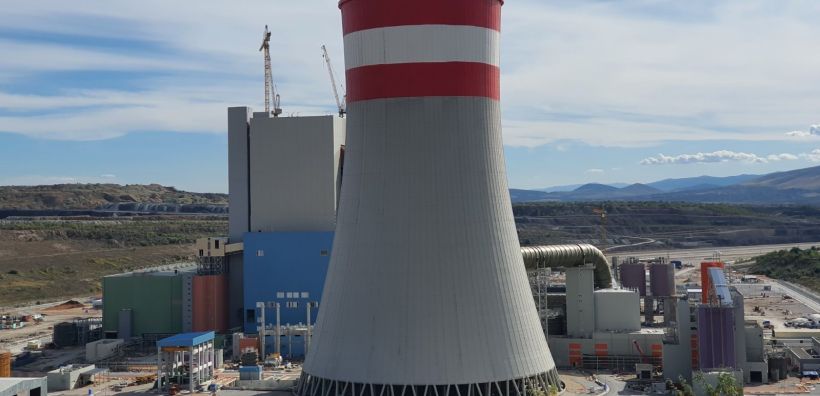Power utility PPC’s forthcoming launch of Ptolemaida V, a new 660-MW power station now undergoing a final stage of trial runs, will need to wait until full-scale testing has been conducted during the summer’s energy-demand peak.
The new facility, to initially operate as a low-emitting lignite-fired power station before eventually converting to natural gas, has been undergoing trial runs since last November, but further testing is needed ahead of its full-scale commercial launch, sources have informed.
The prolonged period of lower electricity demand, further subdued by the energy crisis, has not enabled testing of the new facility under actual high-demand conditions, the sources explained.
As a result, Ptolemaida V’s chief operating engineers plan to wait until July and August, when electricity demand in the country will be far greater, in order to test the facility’s mechanical systems under full-stress conditions.
The new PPC facility, officially presented by Prime Minister Kyriakos Mitsotakis in February, is planned to operate as a lignite-fired power station until 2028, when lignite as a source of electricity generation is expected to be completely phased out.
Its operating efficiency level is far greater than that of older-technology lignite-fired power stations. Ptolemaida V requires 1.5 tons of lignite to generate one MWh, compared to 2.2 tons needed by existing lignite-fired power stations, meaning it operates at a lignite cost of 30 euros per MWh compared to 45 euros per MWh of existing units. Its CO2 emission levels are also considerably lower, roughly 40 percent.





